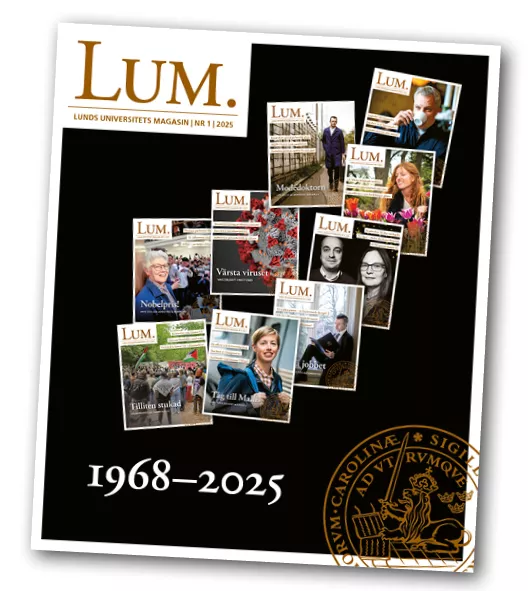In a policy decision last year, the Faculty of Social Sciences decided that within a few years, the current eleven departments will be reduced to eight. In the subsequent years, a couple more mergers are to take place.
Björn Badersten is the acting head of department at the Department of Gender Studies. He reports that discussions about merging the department with the Department of Sociology have been ongoing for some time. In a new proposal from the Faculty of Social Sciences, which was negotiated in accordance with the Employment (Co-determination in the Workplace) Act, the merger has been brought forward and is now planned to occur on 1 January 2025. The principal reason is the difficulties, in numerical terms, of establishing a collegiate-based management and decision-making structure in the small department. In addition, certain work environment issues were emphasised in the proposal.
“Based on this, the faculty has proposed that the merger be brought forward,” says Björn Badersten.
The subject will not be affected
He underlines the fact that operations and the subject gender studies will not be affected in any way – whether that be doctoral studies, research, or students’ courses and programmes. He says, however, that staff feel concerned, even fearful, at the prospect of their department being transformed into a division of another department and the risk of their subject’s identity and autonomy being lost.
“Those concerns have to be taken seriously. If this is done in the correct way, I feel that the opposite could be true – the merger may in fact lead to the subject gender studies gaining a more robust platform to stand upon, with improved long-term conditions for the development of both research and education in the subject.”
Another merger at the same faculty
Another merger in the Faculty of Social Sciences will take place at the turn of the year, when the Department of Communication and Media, located in Lund, will merge with the Department of Strategic Communication, based at Campus Helsingborg.
The Department of Communication and Media has fewer than 40 employees, yet it is stretched across two faculties – the Joint Faculties of Humanities and Theology, and the Faculty of Social Sciences. The media and communication part has belonged to the Faculty of Social Sciences, while journalism, media history and rhetoric have belonged to the Joint Faculties of Humanities and Theology. As a result of the merger, the journalism programme will move, organisationally, to the Faculty of Social Sciences, but will retain its geographical location in Malmö.
A lot in common
“Having a complex organisation in such a small unit has been very difficult.” For example, for all these years, the head of department has had to do everything twice,” explains current Head of Department Ulrika Holgersson.
She also points out that third-cycle education has been shared across the two departments through the years. The division has made its management unnecessarily tricky.
“It has not been good for doctoral students, who have not been able to create a shared and spontaneous environment.
Concern within administration
Mozghan Zachrison, head of the Department of Strategic Communication, expects third-cycle education to be strengthened and to work more effectively when the departments are merged. She also hopes that it will create new constellations among researchers and that conditions for collaboration and interdisciplinary research will be improved.
What reactions have you received from staff?
“Obviously there is concern, above all within administration. Most of it is about where people are going to sit, and whether there will be new work duties. The criticism that has been communicated has largely been about the fact that they feel the communication surrounding the merger has been poor,” says Mozghan Zachrison.
Three will become one
In April, the Faculty of Science decided upon the colocation of three departments. From the autumn 2025 semester onwards, the Department of Geology, the Department of Physical Geography and Ecosystem Science and the Centre for Environmental and Climate Science (CEC) will move in together at Geocentrum and share scheduling of courses and programmes.
The decision to merge the three departments into one will, according to the schedule, be formally taken after the summer.
One aim is to create a large, strong department within the field of environment and climate. Another is to optimise the utilisation of premises, and lower rent expenditure.
According to the decision, a proposal on the placement of all employees is to be ready by 3 June.
This complex puzzle may have further ramifications when CEC leave their premises in the Ecology building on Sölvegatan. One suggestion is for many of the biologists currently stationed in the Biology building to move into the Ecology building, which would leave parts of the Biology building empty.
At LTH, chemical engineering and food technology were merged at the beginning of the year, forming the new Department of Process and Life Science Engineering.




